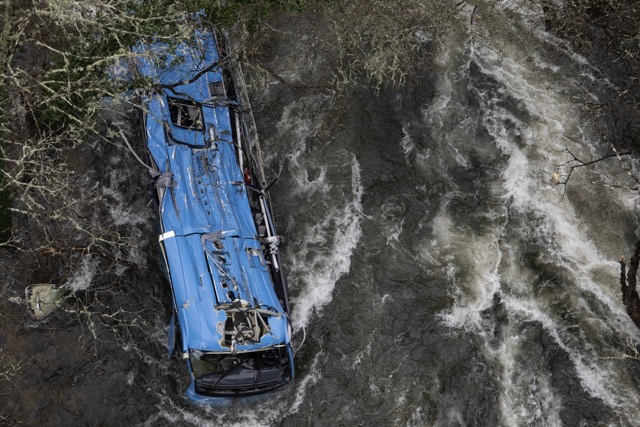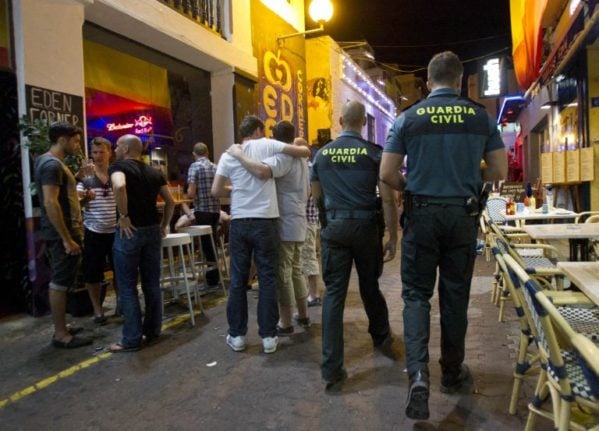The accident took place on Saturday night near the city of Vigo and the border with Portugal. The regional La Voz de Galicia newspaper said the bus was carrying people visiting their loved ones in jail in Monterroso in central Galicia.
Two people, including the bus driver in his 60s, were rescued and taken to hospital.
The emergency services recovered two corpses near the accident site while four others were found in the river later on Sunday, according to rescuers.
“Rescue teams confirm that all people missing have been recovered,” Galicia emergency services said on Twitter, announcing the suspension of search efforts.
The authorities said a motorist first raised the alarm after noticing a safety rail on the bridge had been damaged. Rescuers then received a call from the bus, which helped them find the wreckage.
Rescue operations had to be suspended overnight due to bad weather but resumed at dawn with the help of mountain rescue units and a helicopter.
The accident took place “at a spot with a steep gradient”, making access difficult, said a Civil Guard spokesman in the city of Pontevedra, some 30 kilometres (18 miles) from the site of the accident.
Authorities said rescue operations were also complicated by the heavy rain during the night, causing the level of the Lerez river, where the bus fell, to rise sharply.
They said the cause of the accident was not yet known but that the poor weather could have played a role.
‘Tragedy’
“We do not yet know the causes with certainty” but “it is true that the weather conditions were very bad that night”, said Alfonso Rueda, the president of the Galicia region.
Rueda later posted pictures of his visit to the site of the accident on social media “to encourage and thank the security and emergency responders for their professionalism and commitment”.
“They have been there from the first minute in difficult conditions. My condolences to the relatives of the victims,” he wrote on Twitter.
The Civil Guard said the bus driver had tested negative for alcohol and drugs.
Local officials said one of those killed was a young Peruvian woman living in Galicia working with elderly people. The other victims were Spanish.
The mayor of Cerdedo-Cotobade municipality, Jorge Cubela, described the accident as a “tragedy” and hailed the “professionalism” of rescue workers deployed to the scene.



 Please whitelist us to continue reading.
Please whitelist us to continue reading.
Member comments